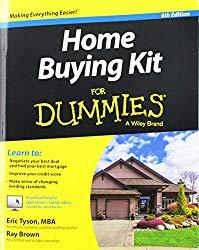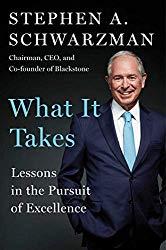Homes in areas with great schools sell for more and there is a simple reason – if there are good public schools, you don’t need to pay an additional $5000 or more per year to send your children through private schools. Even people who don’t have children, and have no intention of ever having children, look for homes in good school districts since they know the homes will be worth more. I’ve never worked out the math to determine the financial advantage of buying a home in a good district versus one in a bad district if you don’t have school-aged children. When you have a home in a good school district you get a better price when you sell, but you also pay more when you buy. It seems like the best deal of all would be to buy a house in a bad school district but then have the schools turn around before you sell since your area of town would then become very desirable.
(Note, if you click on a link in this post and buy something from Amazon (even if you buy something different from where the link takes you), The Small Investor will receive a small commission from your purchase. This costs you nothing extra and is the way that we at The Small Investor are repaid for our hard work, bringing you this great content. It is a win-win for both of us since it keeps great advice coming to you (for free) and helps put food on the table for us. If you don’t want to buy something from Amazon or buy a book, how about at least telling your friends and family about our website as a great place to learn about investing and personal finance. Thanks!)
One thing I’ve noticed is that schools near places that hire a lot of engineers and scientists are almost always among the best in the country, making the homes in those districts among the most desired. For example, the New Mexican town of Los Alamos, home of Los Alamos National Lab, is located on the top of a mesa. The possible land area in Los Alamos is fixed and limited since there are cliffs on all sides. The schools on the mesa are very good and everyone wants to send their children there, so the homes are much more expensive on the mesa than they are down in the valley despite them being cookie-cutter, 1500 square feet WWII era houses.

Having the best schools near large concentrations of rocket scientists and nuclear engineers isn’t just by chance. Obviously the gene pool in those areas is good because the students in those schools include the children of some of the best educated people in the country. But just having smart kids doesn’t always translate into having good schools. Better funding isn’t the reason – the Washington DC schools are the best funded in the country yet rank among the worst schools in the country based on graduation rates and proficiency of students in reading and math. The reason also isn’t teacher salaries or some educational technique that those school have that others don’t.
There is a deeper reason schools in these areas have better results. This reason really doesn’t depend on money and there is nothing preventing schools in even very poor areas from being just as good. The difference is that people who are highly educated place a strong emphasis on education and they expect their children to work hard to do as well as they can in school. They also support their schools through personal involvement with the students.
Go to a high performing school and you will find room mothers for each classroom that plan and support several events during the year. You’ll find fathers building props for the band and transporting students and instruments to competitions. You’ll find the parent-teacher nights fully booked and attended and parents communicating with the teachers regularly. You’ll find a strong PTO raising money for the school to pay for things like classroom supplies and even school improvements. You’ll also find parents serving as mentors for students through clubs and activities and perhaps even visiting to provide a lesson from their work.

I work among a group of engineers and physicists. Despite a busy work schedule there is still a huge amount of involvement in the local schools and community. People in my organization are highly involved in Boy Scouts – there are three scoutmasters who work on the same floor as me and several parents who help out in other ways. There are also parents who drive the bus for the band, are there at every school event, and are leading the PTO.
Beyond helping out at the schools, these parents work with their children to make sure they succeed. They make sure they are well rested and ready to learn by setting proper bedtimes. They cook breakfast in the morning. They make sure the students do their homework and check the answers to make sure they did it correctly. They may also help their children get supplemental materials or reteach the lessons to them if the teacher didn’t do a good job. They make sure their children take time to study for tests and are prepared.

These things really don’t take money. They take time and they take commitment. Probably the biggest thing, however, is expectation. Parents who expect their children to learn and do well, and who don’t enable their children to get by doing less than their best are going to have children who are more successful. Low expectations are far more damaging than virtually anything else. To improve a local school, the parents need to first start by expecting that their children can do well and then put in the time and effort to do so. The second step is to hold the teachers to expecting the same.
Want to learn how to invest and become financially independent? Pick up a copy of the SmallIvy Book of Investing: Book 1: Investing to Become Wealthy. Dave Ramsey also does a great job of explaining how to make good financial choices on a simpler level in his book,The Total Money Makeover.

Have a burning investing question you’d like answered? Please send to [email protected] or leave in a comment.
Follow us on Twitter to get news about new articles. @SmallIvy_SI
Disclaimer: This blog is not meant to give financial planning or tax advice. It gives general information on investment strategy, picking stocks, and generally managing money to build wealth. It is not a solicitation to buy or sell stocks or any security. Financial planning advice should be sought from a certified financial planner, which the author is not. Tax advice should be sought from a CPA. All investments involve risk and the reader as urged to consider risks carefully and seek the advice of experts if needed before investing.
